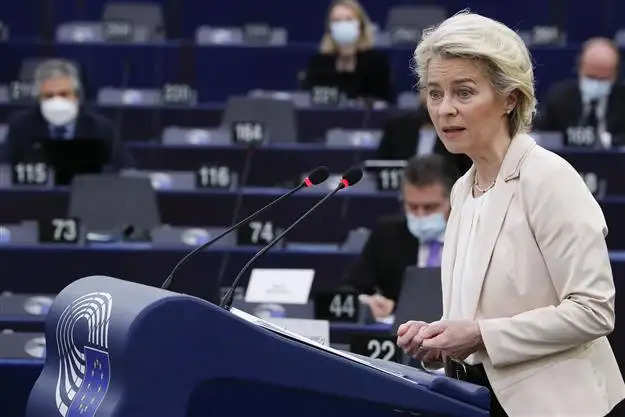By the middle of January, Omicron might be a dominant force in Europe.

According to European Union officials, Omicron might become the dominant coronavirus strain in Europe by mid-January, triggering a surge in infections and possibly increasing the number of hospitalizations and deaths.
"We are facing another Christmas in epidemic mode," European Commission President Ursula von der Leyen warned parliamentarians in Strasbourg, France, saying that the number of new cases across the bloc was doubling every two to three days.
Her address, as well as an evaluation by the European Centre for Disease Prevention and Control, provided a bleak picture of the pandemic's state on the continent, where many nations have lately restored restrictions and rushed vaccine drives.
The omicron variant's likely spread poses a "very high" risk, according to the government.
This holiday season, the European Union appears to be in a better condition to deal with a new wave of diseases than it was last year, when vaccines had not even begun in earnest. Approximately two-thirds of the bloc's population have now been properly vaccinated, with about 14% receiving a booster dose. The European Union can currently produce 300 million vaccine doses every month, according to Von der Leyen.
However, Dr. Andrea Ammon, head of the European Centre for Disease Prevention and Control, cautioned that "given the current scenario, vaccination alone will not allow us to prevent the impact of the omicron variant, because there will be no time to rectify the still-existing vaccine gaps."
Most EU countries accelerated their immunisation campaigns this summer after a sluggish start. Nonetheless, rises in delta and now omicron instances have put fresh stresses on health-care systems, forced schools and offices to close, and reintroduced self-isolation for millions of people.
German health officials stated on Tuesday night that the country could face a vaccine shortfall in the first quarter of next year, which could be a sign of things to come in Europe. The country's health minister, Karl Lauterbach, told German television ARD that extra doses are needed.
This week, youngsters in Germany, Greece, Italy, and Spain will be able to get vaccines. The evening lockdown in the Netherlands has been extended until mid-January, while nations such as Denmark and Belgium have begun mandating restaurants and bars to close earlier.
.png)